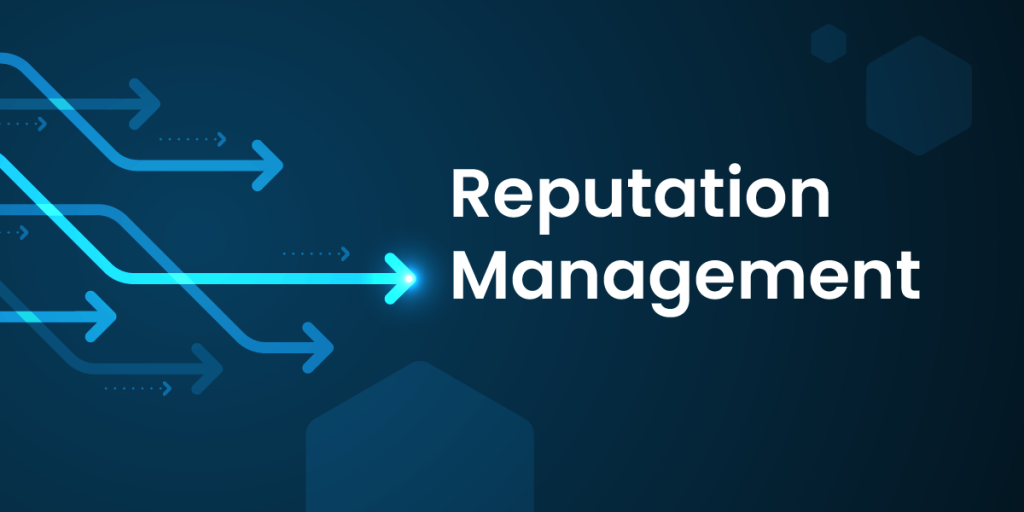Introduction: Why ORM in 2025 Is No Longer Optional
Reputation has always mattered. From the ancient marketplace where merchants lived or died by their credibility to today’s digital bazaar where clicks replace footsteps perception remains the real currency. But in 2025 reputation is no longer shaped by whispers or newspapers it is engineered amplified and sometimes dismantled in real time.
The discipline known as Online Reputation Management (ORM) has evolved dramatically. What was once about responding to negative reviews or suppressing bad search results is now an AI driven ecosystem that predicts crises before they happen measures sentiment at scale and leverages the subtle psychology of social proof.
In this article we will explore the latest trends tools and strategies shaping ORM in 2025 focusing on AI powered systems next generation review platforms and the growing weight of credibility signals in shaping trust.
👉 For a practical perspective on why ORM is already critical for leaders, read this blog on reputation management for CEOs, doctors, and politicians.</em class=”quote”>
The ORM Landscape in 2025
1. From Reactive to Predictive
In the early 2010s Online Reputation Management (ORM) was mostly reactive brands would step in only after a crisis had already damaged their image. By the mid 2020s ORM shifted into a proactive approach with businesses actively monitoring online mentions customer reviews and media coverage to prevent issues from escalating. Now in 2025 ORM has entered a predictive era. Powered by artificial intelligence it does not just monitor it anticipates. Smart algorithms can detect early signals of trouble such as an employee’s dissatisfaction or a customer’s rising frustration addressing them before they become public crises.
2. Reputation as a Business Asset
In today’s digital economy reputation is currency. Investors customers and even regulators now treat a company’s reputation with the same weight as financial performance. A single viral review positive or negative can influence consumer trust investor confidence and even stock valuation overnight. At the same time verified social proof such as credible testimonials or third party recognition can accelerate brand adoption in a matter of days. This shift means Online Reputation Management (ORM) is no longer a side task reserved for PR teams; it has graduated into a core business strategy shaping long term growth resilience and competitive edge.
3. Decentralized Voices Centralized Impact
With new platforms emerging micro communities blockchain based review systems AI chatbots the voice of the customer is scattered. Yet its impact is concentrated. One viral thread on X (formerly Twitter) or Reddit can cascade into mainstream news within hours. ORM tools must now unify fragmented chatter into coherent reputation dashboards.
The Role of AI in Reputation Management
Sentiment Intelligence at Scale
Artificial intelligence in 2025 goes far beyond scanning keywords it now interprets tone context and intent with remarkable accuracy. Instead of treating every mention as equal AI can differentiate between neutral feedback subtle sarcasm and genuine frustration. For instance if thousands of reviews highlight “slow service” the system does not just flag the phrase it analyzes whether customers are joking mildly disappointed or seriously angry. This deeper sentiment mapping allows brands to escalate risks before they spiral ensuring early intervention. The result is a smarter faster and more human like reputation management system that protects credibility in real time.
Predictive Crisis Detection
AI ORM platforms in 2025 do not just measure they forecast. Using behavioral modeling they can anticipate reputational risks such as:
- A competitor planning an attack campaign.
- Influencers hinting at a boycott.
- Internal whistle-blowing leaks.
AI Powered Content Repair
AI tools now generate corrective narratives that align with search engine algorithms. Instead of clumsy SEO suppression they weave authentic counter narratives across blogs Q&A sites and even AI driven search results.
Autonomous Engagement
Chatbots are no longer generic support agents they are tone customized reputation ambassadors. A bot can detect whether a customer is furious disappointed or neutral and respond with empathy that feels human.
Review Platforms in 2025
Reviews are no longer just about five stars or thumbs up. In 2025, review platforms have evolved into multi-layered ecosystems of trust, where authenticity, transparency, and AI-driven insights reshape how consumers and employees evaluate brands.
Evolution Beyond Stars and Stars
The five star system is fading. Review platforms are adopting multi dimensional trust metrics fact check verification verified purchase authenticity AI detected tone and even “impact scores” showing how influential a review might be.
Blockchain Backed Authenticity
To combat fake reviews blockchain verification is becoming mainstream. Each review is time stamped identity linked and cryptographically validated. This ensures brands can’t flood themselves with fake praise or competitors with fake criticism.
AI Enhanced Aggregation
Platforms like Google Reviews Trust pilot and Glassdoor now integrate cross platform AI summaries giving users a holistic “reputation score” that blends customer reviews employee satisfaction and even environmental impact.
Employee Driven Transparency
Internal voices matter as much as customers. Platforms like Blind and Glassdoor are shaping employer reputations in ways that directly affect recruitment retention and even partnerships. ORM strategies must include employee experience management as a key dimension.
The Growing Importance of Social Proof
The Psychology of Proof in 2025
Social proof the idea that people trust what others endorse has deepened in the digital era. Today it’s not just about how many people recommend you but who those people are. Influencer credibility now outweighs follower count.
The Rise of Micro Validation
Instead of relying on celebrity endorsements customers in 2025 trust micro proof small authentic validations from relatable voices. This includes:
- A LinkedIn post by a mid level professional.
- A niche YouTuber’s honest product review.
- A community group’s organic recommendation.
The Social Proof Pyramid
Reputation strategists now describe trust building as a pyramid:
- Base Layer: Verified customer reviews.
- Middle Layer: Influencer testimonials.
- Top Layer: Institutional endorsements (press universities NGOs).
A complete ORM strategy in 2025 requires building all three layers simultaneously.
Algorithmic Proof
Social media algorithms themselves act as proof. If AI curated feeds prioritize your brand the implied endorsement boosts trust. ORM now includes algorithm reputation management ensuring your content aligns with platform biases.
Tools Powering ORM in 2025
In 2025, online reputation management is being reshaped by artificial intelligence, blockchain, and advanced sentiment analysis. These tools allow brands to not only monitor conversations but also predict crises, authenticate feedback, and protect trust across public and internal channels.
| Category | Tool | Core Function |
|---|---|---|
| AI ORM Suites | RepuGuard AI | Predicts crises before they trend. |
| PulseTrack 360 | Combines social, search, and review data into one trust dashboard. | |
| NarrativeShift | Generates ethically aligned counter content for search engines & AI chatbots. | |
| Review Authenticators | BlockVerify | Blockchain-based authenticity validator for reviews. |
| EchoCheck | Aggregates reviews across platforms and detects fake entries with AI. | |
| Social Sentiment Tools | VoiceScope | Maps opinion leaders in real time. |
| EmotionCloud | Detects collective mood swings across communities. | |
| Internal ORM Tools | WorkTrust | Analyzes employee sentiment to track internal reputation health. |
| LeakGuard | Predicts potential whistleblowing and internal leaks using AI. |
Together, these platforms represent the next generation of ORM which is enabling businesses to stay ahead of crises, maintain credibility, and strengthen both customer and employee trust.
Strategies for ORM in 2025
Holistic Reputation Architecture
Brands can no longer silo PR marketing and HR. Reputation is an ecosystem requiring integration of customer employee and community narratives.
Active Transparency
Brands that openly acknowledge mistakes and publish self audits gain long term trust. Concealment is outdated controlled vulnerability is the new reputation gold.
SEO + AI Search Alignment
Traditional ORM focused on Google. In 2025 AI search engines like ChatGPT Search Mode and Perplexity AI dictate visibility. ORM must now ensure reputation narratives appear within conversational AI answers.
Community Co Creation
Smart brands do not just respond to communities they invite them in. Beta programs collaborative campaigns and co authored narratives give stakeholders a sense of ownership in the brand’s reputation.
Crisis Simulation
ORM teams now run reputation fire drills simulating scenarios like viral scandals or coordinated smear campaigns. This ensures they are prepared when reality strikes.
Ethical Considerations in Modern ORM
Authenticity vs. Manipulation
The temptation to engineer reputation artificially is strong but fake reviews and manipulated proof are harder than ever to hide. Authenticity remains the only sustainable strategy.
Privacy Boundaries
AI ORM tools can scan massive datasets but ethical use requires respecting privacy. Tracking sentiment should not cross into surveillance.
AI Bias Risks
AI ORM systems inherit the biases of their training data. Ethical ORM teams must audit tools to prevent skewed or discriminatory outcomes.
The Future of ORM Beyond 2025
Looking ahead Online Reputation Management will evolve into more advanced and futuristic forms of trust and credibility:
Reputation NFTs – These will serve as verified digital badges acting like certificates of authenticity that cannot be faked. Just like blockchain verifies transactions these NFTs will validate achievements skills and credibility across industries.
Decentralized Trust Networks – Instead of depending on centralized review platforms communities themselves will validate brands and individuals. This peer driven model will create a transparent and democratic ecosystem where trust is earned not purchased.
Reputation as Currency – Trust will no longer remain an abstract concept. Measurable reputation scores will influence credit ratings global rankings business partnerships and even hiring decisions.
In this future reputation won’t just shape perception it will dictate access influence and opportunity at every level.
Tips: 💡 In this future, reputation won’t just shape perception it will dictate access, influence, and opportunity.
Conclusion: ORM as the New Trust Economy
Online Reputation Management in 2025 is no longer damage control it is the architecture of trust. Fueled by AI driven tools authenticated reviews and the psychology of social proof reputation now operates as a parallel economy.
The winners will be those who understand that credibility cannot be fabricated it must be cultivated. The fusion of transparency technology and human authenticity is the only sustainable blueprint for reputation in the years to come.
In 2025 and beyond your reputation is not just what people say it’s what algorithms amplify what communities endorse and what the future remembers.
Disclosure: We are a dedicated content marketing agency guiding small and medium businesses through their journey to the first page of Google.

Admin at Search Marketing Experts, publishing insightful blog posts on SEO, digital marketing, and strategies to help businesses grow online.

